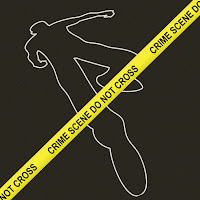Turning the supernatural into the super-believable? That, as
I see it, is the challenge to all paranormal thriller writers. Making supernatural
elements fit into a thriller story so seamlessly that the reader accepts them
without question, is not easy.
After all the vast majority of readers who enjoy this kind
of fiction are perfectly reasonable sane individuals who do not necessarily
believe in ghosts, spirits and things that go ‘whooo’ in the night. But just
like sci-fi readers, they want to wonder and ponder the unanswerable questions.
Just for the time it takes to engage with the story readers will willingly believe
if we give them a good reason to.
That’s not to say that once the book is read the reader will
believe any of it but just for that book the reader suspends disbelief. This,
of course must happen with all stories but it is so much more difficult when
dealing with the paranormal.
Of course, making the world the characters inhabit detailed
and colourful and having the characters themselves rich in human traits and
emotions (even if they are spirits or whatever) helps. If the people in the
story believe in the other-worldly elements and do so right from the beginning
as a matter of course, then the reader will too. Events follow in a normal and
accepted way and lo! - the supernatural becomes the natural for that story.
For me the furthest I will go into using the supernatural is
to introduce elements of ‘what if’ into a story. What if someone’s soul/spirit
does not die with them but carries on in someone else’s body? What if a spirit
wilfully inhabits someone else’s body and makes them do things they would never
normally do? What if someone has the power to read certain people’s minds? What
if this power is hereditary and a child is unaware they have it? What if
someone believes that if they preserve a person’s body after death they will
gain power over life and death and eventually become immortal themselves? (See
The Afterlife of Darkmares ). What if a person really does have a double and the
double/doppelganger bends the person’s will to make them murder their own
child?
I know, I know. All of these have been done before but not
by me and my imagination. I had fun with these stories and will continue to use
similar scenarios in my writing. But apart from the paranormal additions my
plots have conflict, suspense and follow normal storytelling rules and my
imagination, with the help of my muse, adds width, depth and a sprinkling of
magic – at least I hope it does…
Happy Writing!



























